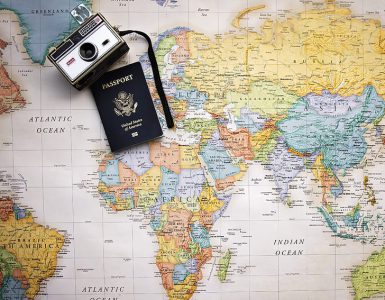Personal accident insurance is an essential consideration in Singapore and any other place for that matter. It protects you from unforeseen circumstances that come your way even if you’re liable for it. Many people in Singapore have insurance. However, most of them assume that it allows them to live life on the edge.
Unfortunately, many people who have personal accident insurance in Singapore do not realise that they might be jeopardising their cover. It is therefore vital to understand the terms of the insurance cover. Additionally, to understand what might void your cover. Below are some of the situations that may void a personal accident cover.
#1 Having a positive HIV diagnosis
Most insurers in Singapore consider a HIV positive diagnosis a strong reason for voiding a personal accident cover. They often include it as a clause in their accident policy. Insurers have been doing this since there was a limited understanding of HIV and how to manage it.
However, modern medicine has drastically improved since then, and the condition is now manageable. Thus allowing patients to live a relatively long and healthy life. Nevertheless, insurers still consider it a reason for voiding a personal accident insurance cover.
#2 In case the insured suffers an accident while under the influence of alcohol or drug substances
Singapore residents cannot secure a payout from their Personal Accident insurance cover if they are involved in an accident while intoxicated or inebriated. Not many insurance holders in the country know about this. The insured will not be compensated if it is proved that the accident happened while they had consumed alcohol or had hard drugs in their system.
Insurance companies will almost always refuse to pay if you were intoxicated unless you can prove that it did not cause the accident. A dash cam might save the day in such an instance if it managed to record the accident.
#3 Visiting countries that are blacklisted by the Ministry of Foreign Affairs (MFA)
Most insurance companies in Singapore can void a personal accident insurance cover if you travel to a country on the MFA’s advisory list. Travelling to a blacklisted country means you will be voluntarily endangering yourself, and this goes against insurance policies. Moving to such countries will subsequently void your insurance cover.
Insurance companies have this clause because travelling to blacklisted countries increases the risk of injury. People who frequent such countries whether for volunteer work of social work should consider this. You might want to give your insurer a heads-up in case you plan to visit a blacklisted country. It will allow the insurer to provide an extended policy coverage that will enable you to avoid voiding the original insurance cover.
#4 Fraud
Fraud is one of the top reasons for voiding any contract and the same applies to a personal accident insurance cover. The insured may fake an accident to get a payout or even omit some vital information to gain an advantage in case an accident happens. Such instances would encourage Singapore insurers to void the insurance cover.
One good example of such a case is if a smoker fails to disclose that they smoke to avoid paying a higher premium, then the insurer reserves the right to void the cover. Conditions are therefore important when it comes to personal accident insurance cover.
#5 Complications arising from an accident
Your personal accident insurance cover might become void if there are complications after the actual accident happened. For example, one may develop an infection when being treated for injuries sustained during an accident.
The insured will not be compensated for the infection since the surgery and not the accident caused it. The best way to avoid such issues is to take a comprehensive cover since personal accident policies are very limited.
*The advice offered in this column is intended for informational purposes only and not intended to replace or substitute for any professional, financial, legal, or other professional advice. If you have specific concerns or a situation in which you require professional help, you should consult with an appropriately trained and qualified adviser.



















